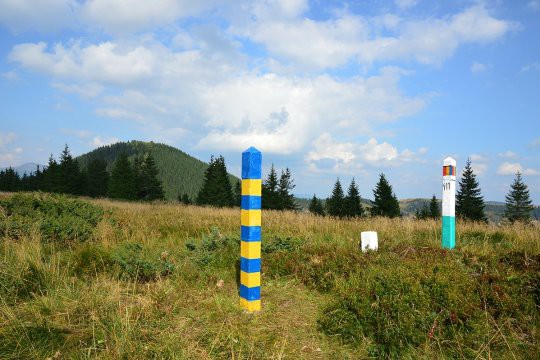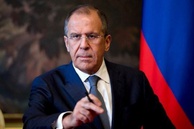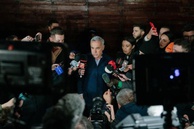Ukraine borders on four EU countries – Poland, Rumania, Hungary, and Slovakia. Of these four countries, only Slovakia has no territorial claims on Ukraine.
The other three has territorial claims to Ukraine at historical identity level and at domestic policy level. At times, these claims make themselves felt in the public space, which testifies to long-living historical, national and psychological stereotypes, which are at odds with the political mythology of Ukrainian statehood.
During President Zelensky’s recent visit to Rumania, Alliance for the Union of Romanians Deputy Diana Șoșoacă openly claimed back Northern Bukovina and Bessarabia along with the observance of the cultural rights of Romanian minority(1). For fear of further incidents, the host country cancelled Zelensky’s address to Romanian parliament.
The legitimacy of Ukraine’s present borders has in recent years been put under doubt by patriotic groups in Eastern Europe. Șoșoacă has all but expressed openly what many Romanians would be willing to say. Bucharest counts on trans-border control of Ukraine’s territories which he deems Romanian, while preserving as a formality the Ukrainian sovereignty of it.
A similar example is being shown by Albania and Kosovo. While formally, these are two independent states, in practice, Kosovo is almost a replica of Albanian state. Bucharest also wants the Chernivtsi and Odessa Regions of Ukraine to become a cultural, military and strategic continuation of Romania, even if they remain the territories of Ukraine.
Hungary has been openly demanding autonomy for Hungarians in the Zakarpattia Oblast of Ukraine. This region used to be known as Carpathian Rus, Ugric Rus, as part of Czechoslovakia - Subcarpathian Rus. It became part of Ukraine in 1944, after years as part of Hungary. Budapest too is keen on establishing trans-border control of the region, but the long-term priority for it is to return Zakarpattia into the Hungarian state.
Hungarians are the most problematic minority for Kyiv. Being consolidated as a group, they are not prone to Ukrainization. For 95% Hungarian remains a native language. The Hungarian press spares no criticism of regional politicians with anti-Hungarian moods (2).
According to reports, Hungary is getting ready for a hypothetical deployment of police forces in Zakarpattia in case of unforeseen circumstances should there be a collapse of Ukrainian statehood.
Poland is claiming the largest chunk of Ukraine – Lviv, Ivano-Frankivsk, Ternopol, Rivne, Volyn Regions. Officially, these territories are considered a historical legacy of the Polish-Lithuanian Commonwealth (“eastern kresy’). Even though there is no mention of the need to include these territories into Poland, there is talk about the importance of maintaining Polish cultural, religious and other presence here. Once again, we observe an analogy with Albania and Kosovo: the “eastern kresy” for Warsaw mark a continuation of the Polish state, while the Polish-Ukrainian border exists on paper only.
Territorially, the “eastern kresy” reach out as far as the western borders of the Russian Federation, there are historical guidebooks on “the territories of the Polish-Lithuanian Commonwealth” which mark the eastern borderlands of this state far eastward (3). For Poles, waiving “kresy” is ideologically impossible.
Official propaganda interprets everything in the following light: “kresy” – Polish lands as part of Friendly Ukraine. There is a possibility that amid the continuing aggravation of relations between Kyiv and Warsaw, the latter might speak about “eastern kresy” in a harsher manner.
For Poland, it makes more strategic sense not to occupy “kresy” again but to have a religious, political, cultural and economic influence, through “kresy”, on Ukraine. To this end, “kresy” should remain part of Ukraine but be maximum Polonized. This is far from easy due to Kyiv’s reluctance to turn Galicia, as a model of Ukrainism as such, into an ideological appendix of Polishness. Warsaw’s policy in this area is perpetual search for a balance, friction and embraces with Kyiv, which leads to either a stronger Polish influence in the region, or its weakening.
Ukraine set this tone of communication with the neighbors itself. Underlying Ukrainian statehood is nationalistic ideology, and as is known, nationalism spots enemies everywhere. As a result, Ukrainian nationalism, in its traditional format, puts territorial claims on all neighbors without exception.
In the opinion of Ukrainian nationalists, Russia, Belarus, Moldavia, Trans-Dniester, Poland, Slovakia, Romania, and Hungary – all owe a piece of land to Ukraine. Most lands should come from Poland (eighteen regions in Subcarpathian voivodship) and Russia (lands up to the Caucasus).
For this reason, it’s at least strange to hear Ukraine complain about the neighbors, given that Ukraine itself finds territorial claims ideologically appropriate in relation to the neighbors in question.
The opinion of the author may not coincide with the position of the Editorial
- https://globaleuronews.com/2023/10/11/romanian-senator-diana-shoshoake-nazi-zelensky-is-killing-romanian-children-give-back-our-territories/
- https://hungarytoday.hu/infamous-anti-hungarian-mukachevo-mayor-suspected-of-corruption/
- https://kresy24.pl/zobacz-wystawe-online-staropolski-bedeker-zwiedzaj-rzeczpospolita-w-roku-1620-z-hetmanem-zolkiewskim/
read more in our Telegram-channel https://t.me/The_International_Affairs

 11:51 25.10.2023 •
11:51 25.10.2023 •



























